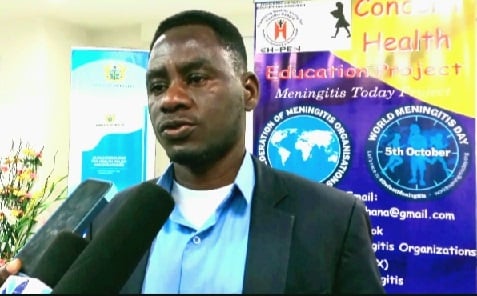The Meningitis Outbreak in Ghana: A Growing Concern
Ghana is currently grappling with a concerning meningitis outbreak, primarily affecting the Upper West Region. With 30 reported cases and 14 fatalities, the situation demands urgent attention and coordinated action from health authorities, NGOs, and the community. The Concern Health Education Project (CHEP), a leading NGO, has taken a proactive stance, mobilizing its volunteers to educate communities and encourage early medical intervention. The outbreak underscores the vulnerability of the region to infectious diseases and the crucial role of preventative measures like vaccination.
The epicenter of the outbreak appears to be the Nadowli Kaleo District and Nandom Municipality, although six districts within the Upper West Region are now affected. The rapid spread of the disease highlights the need for intensified surveillance and prompt response measures. CHEP has issued a call to action, urging the Ghana Health Service, the World Health Organization (WHO), the Ministry of Health, and other civil society organizations to join forces in combating the outbreak. Their appeal emphasizes the importance of integrated efforts, encompassing prevention programs, symptom recognition, and regular health check-ups within affected communities.
Recognizing the critical role of early detection, CHEP is disseminating vital information about meningitis symptoms. Headache, fever, neck stiffness, and neck pain are common indicators, and anyone experiencing these symptoms is advised to seek immediate medical attention. Early diagnosis and treatment can significantly improve outcomes and reduce the risk of complications. Bacterial meningitis is a known threat in Ghana, with streptococcus, Neisseria, and meningococcal bacteria identified as major causative agents. This understanding informs targeted interventions and reinforces the importance of preventative strategies like vaccination.
CHEP’s CEO, Mr. Isaac Ampomah, has stressed the urgent need for a multi-pronged approach to tackle the outbreak. He has called for increased community education campaigns, emphasizing the importance of prevention, early treatment, and ongoing support for affected individuals and families. Mr. Ampomah has also urged the newly appointed health ministry officials to prioritize the outbreak response and ensure the timely deployment of health workers, necessary logistics, and adequate funding. The organization has emphasized the life-saving potential of vaccines, advocating for a thorough assessment of the vaccine supply chain and timely provision of vaccines to at-risk populations.
Collaboration is paramount in effectively addressing this public health crisis. CHEP’s partnership with international organizations like the Confederation of Meningitis Organizations (CoMO) and the Meningitis Research Foundation (CoMO-MRF) strengthens their response capacity and ensures access to global expertise and resources. These collaborations facilitate knowledge sharing, best practice implementation, and the development of comprehensive strategies to combat meningitis. The collective efforts of these organizations amplify the message of prevention, early detection, and prompt treatment, contributing to a stronger and more coordinated response.
The current meningitis outbreak serves as a stark reminder of the ongoing challenges posed by infectious diseases in Ghana. While immediate actions are crucial to contain the current situation, long-term solutions must focus on strengthening health systems, improving sanitation, promoting health education, and ensuring access to preventative measures like vaccination. By fostering community engagement, empowering local health workers, and investing in robust public health infrastructure, Ghana can effectively mitigate the impact of future outbreaks and safeguard the health and well-being of its population. The current outbreak demands not only an immediate response but also a long-term commitment to building a more resilient health system capable of preventing and effectively managing similar challenges in the future. Continued vigilance, community education, and collaborative action remain crucial as the situation unfolds.














